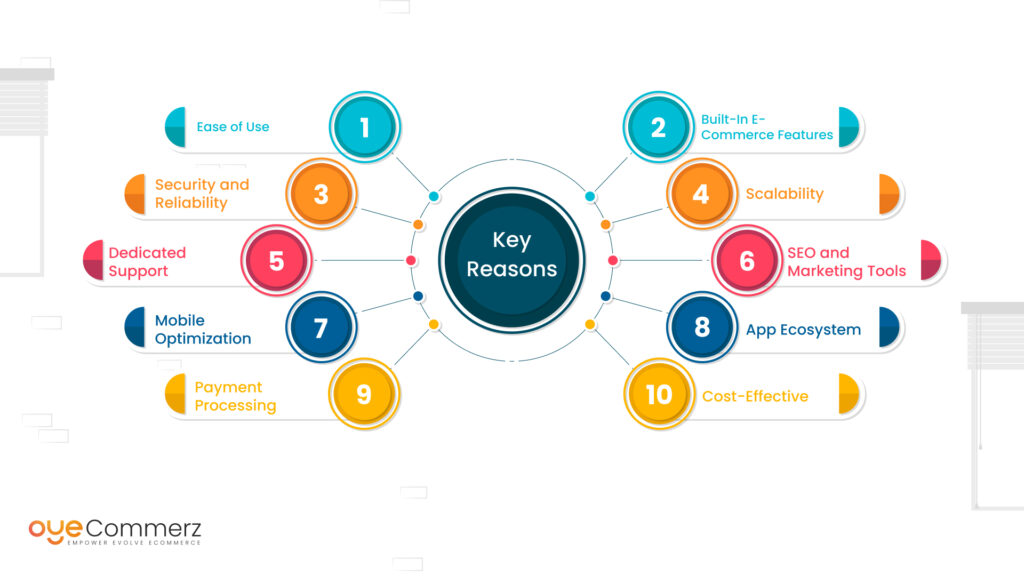In the constantly changing landscape of eCommerce, picking the best platform is essential for your brand’s prosperity. If you’re currently using WordPress and thinking about a migration to an alternative, you’re not by yourself. Numerous businesses are shifting to take advantage of Shopify’s powerful features, ease of use, and expandability. This guide will take you through the steps of migrating from WordPress to Shopify seamlessly, ensuring that you unlock your online retail potential.
Why Switch from WordPress to Shopify?
Ahead of starting the migration journey, it’s important to understand why this change can be beneficial for your online store:
Accessible Tools: Shopify features an user-friendly dashboard that simplifies store management, allowing for non-technical users.
Growth Potential: As your business develops, Shopify can support greater visitors and sales without compromising performance.
Built-in Tools: Shopify provides pre-installed features for SEO, analytics, payment management, and additional functionalities, minimizing the necessity for multiple plugins.
Robust Protection: With Shopify, you benefit from robust security measures that protect sensitive customer data.
Steps for a Effortless Migration
Migrating your eCommerce site from WordPress to Shopify involves multiple actions.
Here’s the way to facilitate a hassle-free transition:
Outline Your Migration Approach
Start by mapping out your migration plan. Identify which components of your present site you plan to transfer, such as:
Product data
Customer information
Order history
Posts
Pick the Appropriate Migration Solution
Based on your requirements, select a migration service that fits your store. OyeCommerz delivers various options:
Entry-Level Plan: Perfect for compact stores with fewer products.
Mid-Tier Plan: Appropriate for mid-range businesses with more complex demands.
Premium Migration Package: Perfect for high-volume stores demanding extensive customization.
Backup Your Data
Before beginning the migration, ensure that you have a comprehensive archive of your WP site. This action is crucial in case anything goes off track during the move.
Retrieve Your Content from WordPress
Use extensions or manual methods to extract critical content from your WordPress site:
Products
Customers
Orders
Content pieces
Migrate Content into Shopify
Once you have your data exported, utilize Shopify’s import tools or specialized apps to migrate your information into your updated store. Ensure that all information is properly formatted and placed.
Adapt Your Shopify Site
After uploading information, adjust your Shopify site’s design to align with your business goals. Look into hiring a specialist if you want detailed customization.
Configure TransactionOptions and Logistics
Arrange transaction methods and delivery choices in Shopify to facilitate a user-friendly checkout experience for customers.
Adopt Search Engine Optimization Best Practices
To maintain your online visibility during the migration:
Set up 301 redirects from existing URLs to migrated ones.
Refresh meta tags.
Adjust media and copy for search engines.
Evaluate Your New Platform
Ahead of launching, completely check your migrated platform. Look out for any discrepancies, payment processing issues, or untransferred content.
Publish Your Platform
After everything is in place, it’s the opportunity to go live! Inform the update to your customers and invite them best practices for Shopify migration to experience the enhanced capabilities of your Shopify store.
Post-Migration Support
Following launching your Shopify store, regular help is important. Explore partnering with service providers who can help with:
Troubleshooting
Marketing strategies
Enhancing features
Conclusion
Migrating from WordPress to this platform can be a game-changing step for your digital business. By following Shopify for secure transactions this guide and working with experts like those offered by industry leaders, you can achieve a seamless transition that improves your business potential. Accept the shift and unlock the full capabilities of Shopify today!
